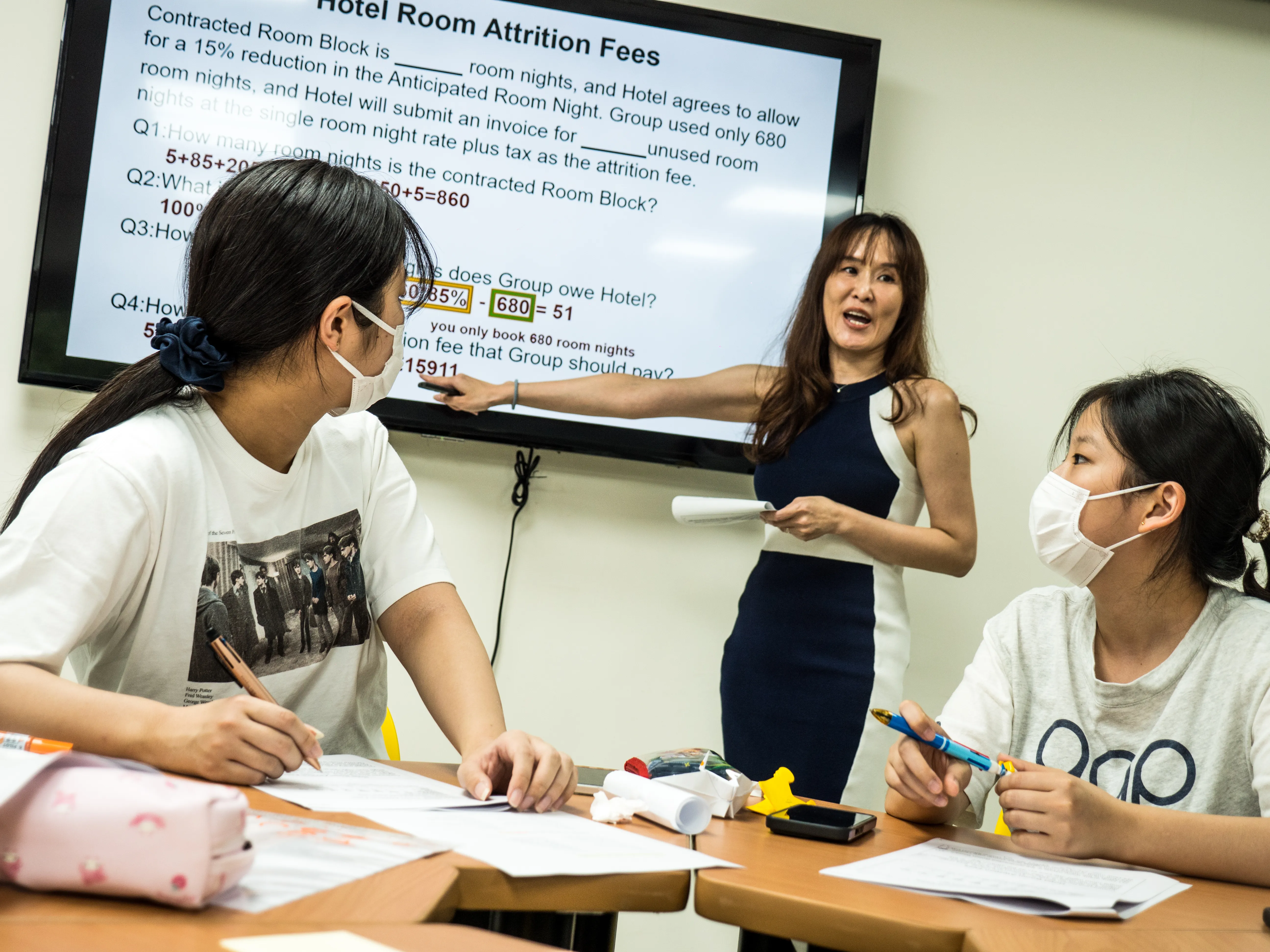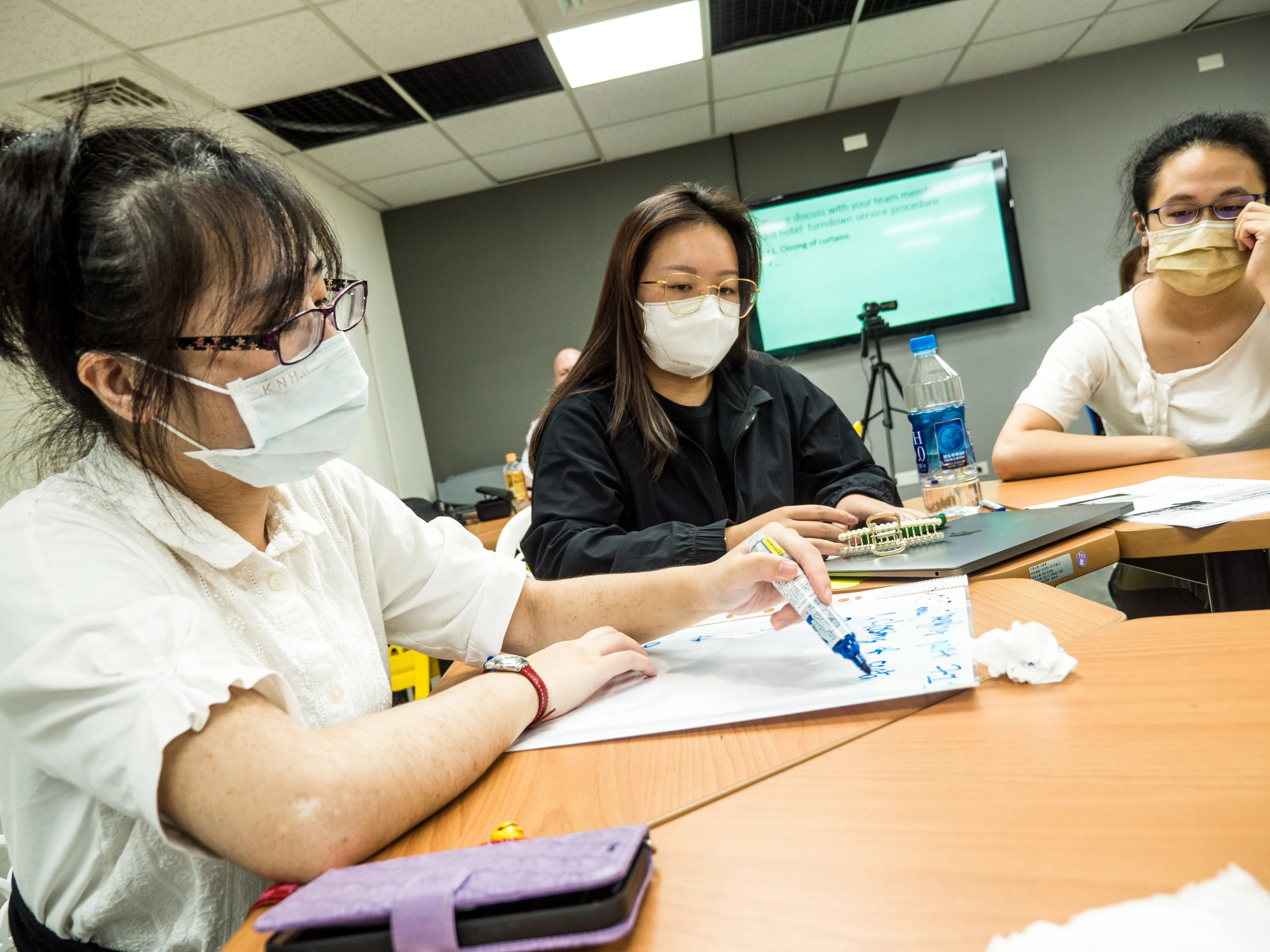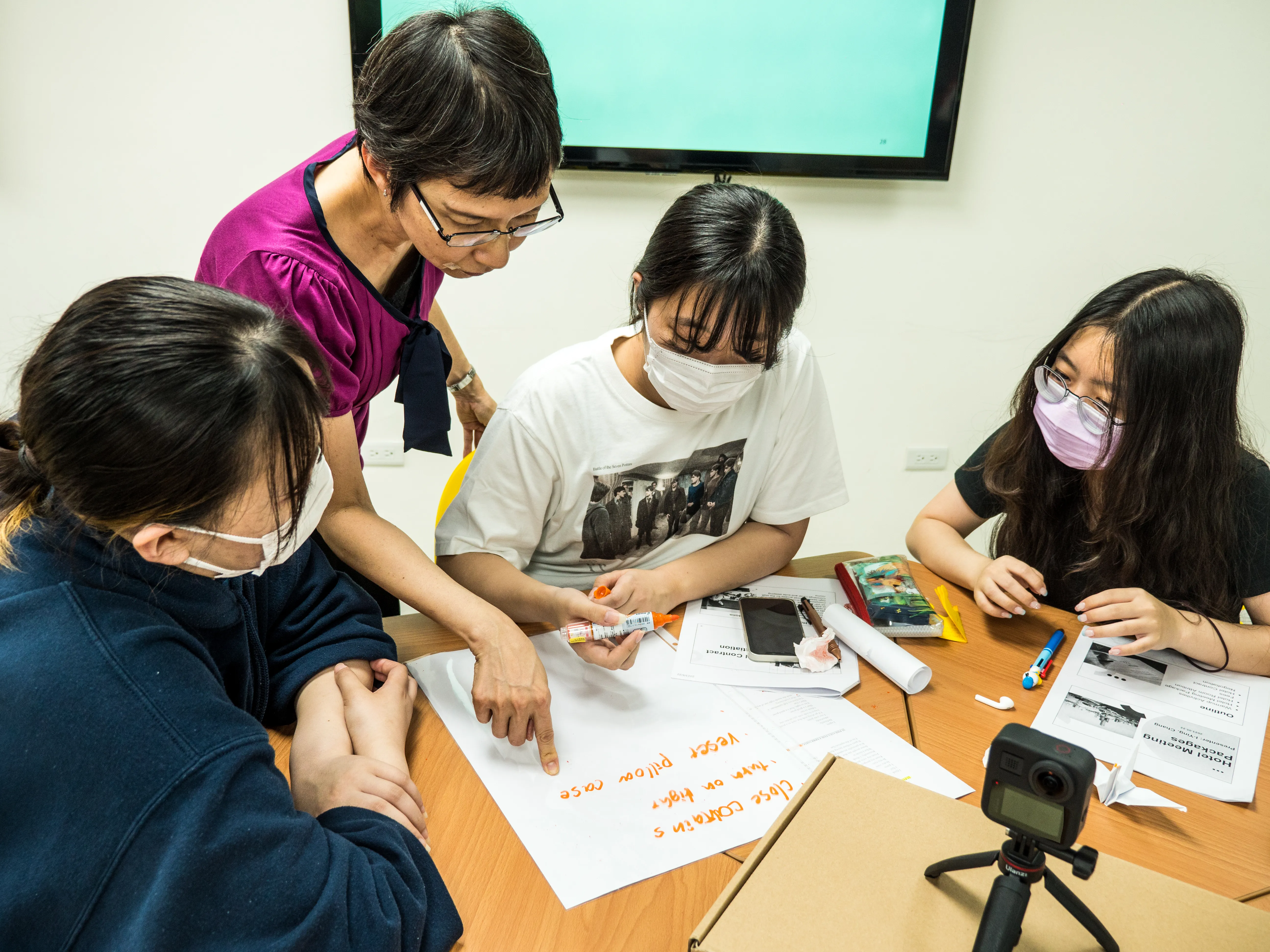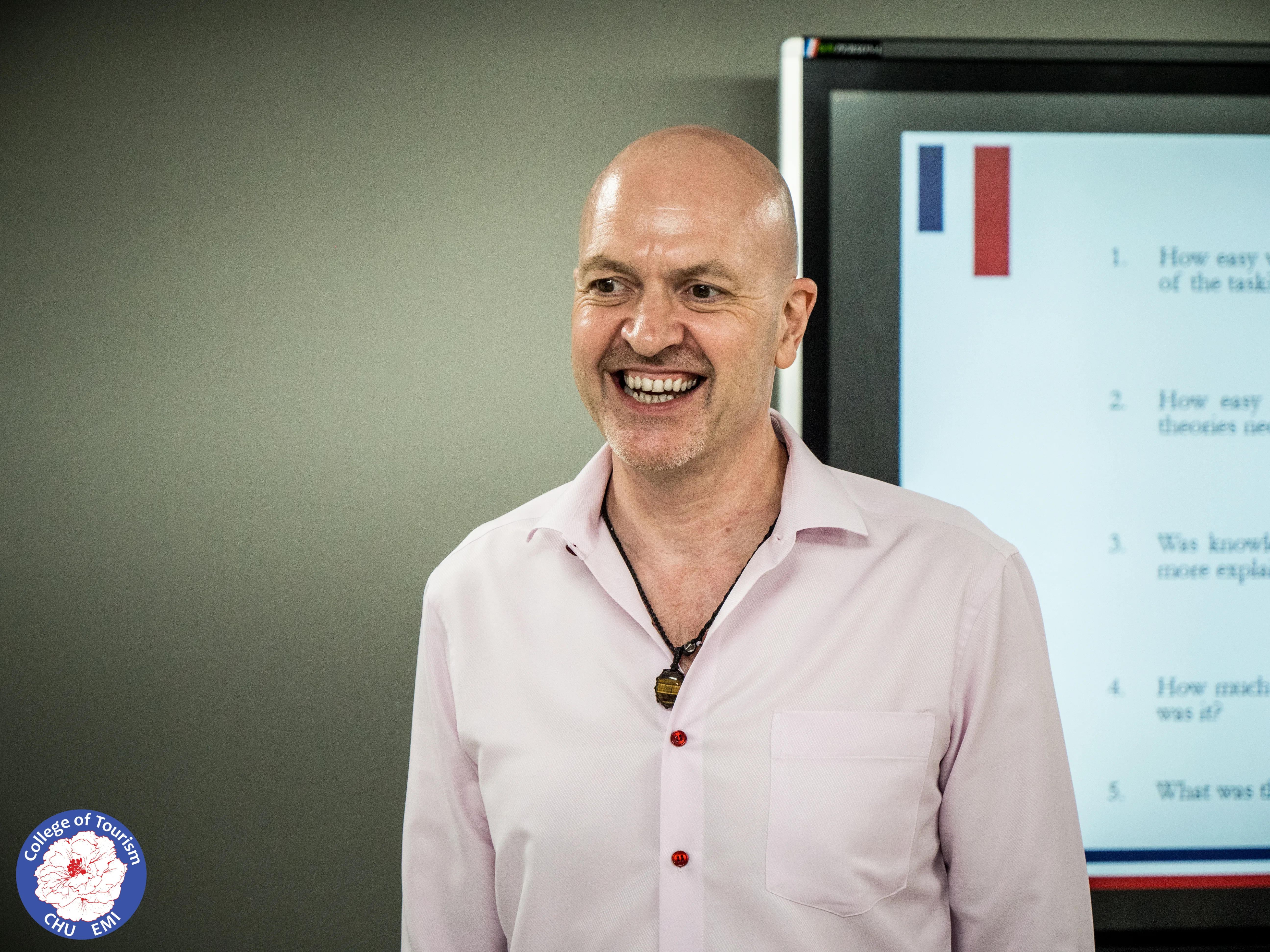The College of Tourism’s Quality Assurance Programme is currently available for all lecturers at CHU and is set to expand to partner universities across the sector. The programme includes a series of workshops that focus on model pedagogical approaches, which can be utilised in Taiwanese university student classes, and can lead to greater levels of success in the EMI learning and teaching environment. The participating lecturers get the opportunity to use a range of observation schema including the BEST self-assessment template while participating in, observing and critiquing best practice university classes delivered by external experts and internal CHU CERT PT qualified lecturers. The workshops and observations are provided by Trinity College London accredited teacher trainers


Stage 1 workshops include:
- Demonstrations of model university classes.
- How to introduce different types of tasks such as mini whiteboard tasks, discovery approach tasks, definition tasks, matching tasks, labelling tasks, information gaps, cloze tests, and ranking tasks when discussing a range of topics.
- How to use a range of question types to facilitate the transfer of knowledge in the university lecture theatre.
- How to incorporate visual teaching that enhances the effectiveness of university EMI classes.
- How to improve atmosphere, rapport and motivation while developing knowledge collaboratively.
- How to adopt a scaffolded approach toward introducing the topic, thereby making the topic understandable.
- How to use multimedia in a manner that is likely to promote necessary skill development in the EMI classroom.
- How to adapt source materials into interactive, engaging, cognitively challenging and motivating EMI classes.
- How to use the observation schemata to confirm the approach adopted to the use of English in the EMI classroom and to develop understanding of the importance of interaction in the university lecture theatre.
- How to ensure alignment with the working definition of EMI. (See below).
Working definition of EMI
An EMI course of study is when an academic subject is taught through the medium of English. This means that English courses in which the learning is focussed on language rather than subject contents should not be considered as EMI courses.
There are 2 further key elements in the working definition:
- For EMI courses, the delivery of content, whole-class interaction, the learning materials, and the demonstration and assessment of learning outcomes (such as oral presentation, assignments, or tests) should be in English.
- Other languages may be used in a principled and limited way in specific circumstances. For example, student-to-student and teacher-to-student interaction during pair work and group work may sometimes take place in languages other than English to aid mutual comprehension and idea generation. However, students should be asked to present their learning outcomes in English and lecturers should ensure that at least 70% of class communication takes place in English. Good EMI course practice should encourage the students to engage in English speaking and writing as much as possible.


Stage 2 workshops include:
- How to develop understanding of the principles of the successful use of developmental observation tools.
- How to develop understanding of best practice approaches in the university classroom.
- How to use a range of developmental observation schemata to facilitate effective EMI classroom learning and teaching environments.
- How to create and use bespoke developmental observation tools suitable to observe classes in situ and micro teaching sessions of CERT PT course participants.
- How to use developmental observations to facilitate ongoing, long term continuing professional development.
- Opportunities to share and cascade knowledge to likeminded peers across CHU and across the EMI university sector.
Contact us if you’d like further details or if you’d like our help setting up communities of practice and quality assurance programmes at your institution.
